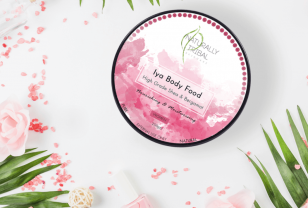Most of us have experienced a change in our bowel movements before and during our periods. Perhaps you’ve noticed your stomach gurgling during your period but, why is this?
Prostaglandins are believed to be the root of the problem. These are chemicals that release during your period, allowing your uterus to contract. Aka the cause of the dreaded cramps. This increase in prostaglandins causes people to experience diarrhoea. Or, if your body doesn’t produce enough prostaglandins, you can experience increased constipation. Either way, neither are fun and on top of all the other symptoms can make you feel pretty rubbish.
As someone who has dealt with IBS over the years, I’m here to share my top tips to calm your digestive system. My IBS is particularly prominent in the severe pain/cramping area. So, I suppose you could say this is the area I’m particularly full of wisdom and advice in.
So, how do you calm your digestive system during your period? Here are my top tips:
Take it slow
It’s so important to not devour food in two bites or less. Leave yourself time to sit down and eat so your stomach can digest the food properly. Avoid at all costs eating standing up or whilst walking. Slow down, take a seat, eat slowly and avoid drinking anything too hot whilst eating – particularly coffee. Caffeine is renowned for being a gut irritant, so it’s particularly vital to avoid this to calm your system. If this seems impossible, try cutting down to only 1-2 cups a day.
I also want to reiterate the importance of ensuring you take the time to chew your food. Your body cannot digest your food if it is not chewed properly. It’s important that your body can turn the food you consume into energy. This may all sound like very standard advice, but we’re all guilty of quickly eating food or eating on the go during busy work days!
Don’t miss out
I tend to find if I skip meals or eat loads all a sudden it plays havoc on my digestive system. Make sure you’re eating regular meals and not leaving long gaps in between consuming food. If you consume a huge meal on an empty stomach your digestive system gets a bit of a shock. Especially if you’ve only eaten small meals that day and the large meal isn’t nutrient dense. A prime example of this would be eating next to nothing all day and then eating a large takeaway meal to make up for it. Trust me when I say that your stomach won’t thank you.
The medical saviours
I’ve never found regular painkillers to be that effective on digestive issues and pains. Buscopan is my go-to when the stomach pain is severe, so I really recommend it (always read the label). When I take Buscopan within twenty minutes I feel like a completely new woman! It works by completely relaxing the muscles in your digestive system. For diarrhoea, Imodium is also effective. I recommend only taking painkillers when necessary.
Try to use natural methods as much as possible. Heat is a godsend for pain relief – especially the subtle heat pads! If you track your period (read why we think you should here), try adjusting your diet by adding in natural anti-inflammatories like pineapple and tamarind the week before.
Let’s talk fibre
Fibre has a huge role in digestive health. It is particularly essential for those suffering from symptoms of constipation, as It helps keep bowel movements regular. Be careful, as too much fibre can result in excess gas (make sure you’re drinking plenty of water). But, in general, fibre works by regulating bowel movements and water content in the stools. There are two forms of fibre: soluble and insoluble. Soluble fibres are found in foods such as oats, nuts, beans, apples and blueberries. Insoluble fibres are found in foods such as whole-wheat bread, seeds and brown rice. Flaxseeds are also a gentler source of fibre.
If you have constipation, it is best to consume more soluble fibres. I would recommend opting for the softest options such as sweet potato and wild rice. Alternatively, if you are suffering from diarrhoea, it’s best to opt for more insoluble fibres.
Alongside the tips above, it’s also important to remember to drink plenty of water, move more and avoid junk food. I know. You’re probably bored of hearing people tell you those, but they really will help! These four tips are my favourites. I hope that helps you calm your digestive system during your period. I’d also love to hear your tips on how you calm yours down! Tweet me at @totmorganic or leave a reply in the comments below.
Please note: I am not a doctor or medical expertise and do not suggest that I have giving medical advice. The information in the blog is based on my own research and experience. If the pain is unbearable or you are passing blood, it could be something a lot more serious. More severe symptoms can be a sign of Endometriosis. Consult your doctor immediately if you have concerns it could be something serious or if you are generally concerned about your digestive issues.
For more advice on health and wellness, check out some of the other articles in our hub.









